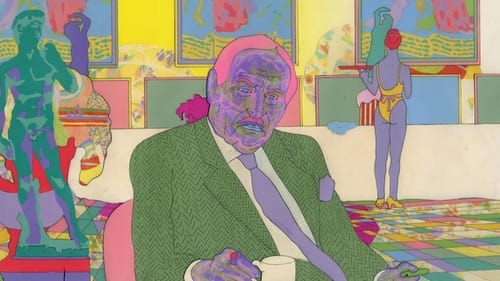Among Men (1960)
Genre : Documentary
Runtime : 14M
Director : Władysław Ślesicki
Synopsis
Impressionistic study of the fate of a stray dog, trying to avoid the results of human indifference and cruelty.

A confrontation of two worlds-- Two rooms, one of which is full of light and colors, the other a monotonous gray.

Baptist convention, funeral home, and assorted locations in Denver, CO; Tulsa, OK; Muskogee, OK; and unidentified locations.

Christian holy sites in Jerusalem and Galilee, Israel.

“The Forgotten Faces (1961), a film reconstruction of the Hungarian revolution of 1956, won Watkins another amateur Oscar, and to this day, the film is praised in England as "one of the most memorable amateur films ever made".

A young boy gets caught stealing a sheep and is shaved of all his hair and branded with a mark on his forehead so that everyone will know that he is a thief and not to be trusted. Dumped in the desert, the thief covers his marking with a headscarf and goes to the nearest village where he is taken in by a trusting family in return for his work. However, has be actually changed or is he still the same thief at heart?

Few films wield the awesome spiritual power of Jazz Dance, on which Leacock was one of two cameramen charting the slow, smoldering build of a Manhattan dance club from idle space to explosive, carnal bacchanal. Employing handheld cameras, limited light and sheer proximity, the film achieved an intimacy never before witnessed in a documentary.

Well-known locations in New York City. Clergy and others in Chicago; Muskogee, OK; and Bristow, OK.

Rottenberg’s newest film, Cheese (2007), conflates farm-girl imagery with the fairy tale “Rapunzel” into a story loosely based on the Sutherland Sisters, renowned for their extremely long hair. Floating through a pastoral yet mazelike setting of raw wooden debris cobbled together into a benign shantytown, six longhaired women in flowing white nightgowns “milk” their locks and the goats they live with to generate cheese. Shots of animals crowded in pens and the sisters’ bunk bed– cluttered room visually compare the women to their ruminant allies. As nurturing caretakers, these women represent maternal aspects of Mother Nature. Here Rottenberg investigates feminine magic, the ability to “grow things out of the body” as she says, as the ultimate, wondrous physical mystery.

Residences, tombs, and other locations in Eufaula, OK, and unidentified locations.

Residences, churches, funeral march, school children in Muskogee, OK; Taft, OK; and Okmulgee, OK.

Documentary short by Humphrey Jennings

An animated short story by Ersain Abdrahmanov about the Sky-Lark.

The first NFL Films feature, it established the trend of dramatizing the game itself and not the outcome.

Early Balkan footage.

1950 - a young couple find out whether they are "ready for marriage".

Documentary about a miner's strike in Borinage.

Flashback on the problems, adjustments and transformations occurring in the first year of a couple's married life. Pretty surprising film coming from Coronet about the "honeymoon is over" drama that newlyweds face. The marriage between Dotty and Pete is pretty traditional--Dotty quits her job to be a homemaker once they are married--but some more modernistic ideas come out, such as the idea that the two newlyweds decide together how the money that Pete earns will be spent, and the small mentions of sex. (!!) The "educational collaborator" listed at the beginning, Lemo Rockwood, was a professor at Cornell University, and her marriage course advocated sexual frankness and pre-marital experimentation, so it's easy to see her stamp on this film.

This film illustrates the history of the St. Lawrence river. From prehistoric times on, it has been a magnificent source of life. The film covers the impact of humanity beginning with the careful relationship with the Native Americans. This soon changes with the arrival of Europeans who begin the insatiable exploitation that would led to the river's damage, creating a situation that we must resolve for all our sakes.

Early Balkan footage.

The film is a documentary portraying a struggle as man tries to subdue nature. To prevent flooding and for purposes of land reclamation, the people of the Netherlands struggle and succeed in building a breaker, thereby eliminating the wild inland body of water once known as the Zuider Zee (now called Ijsselmeer).







